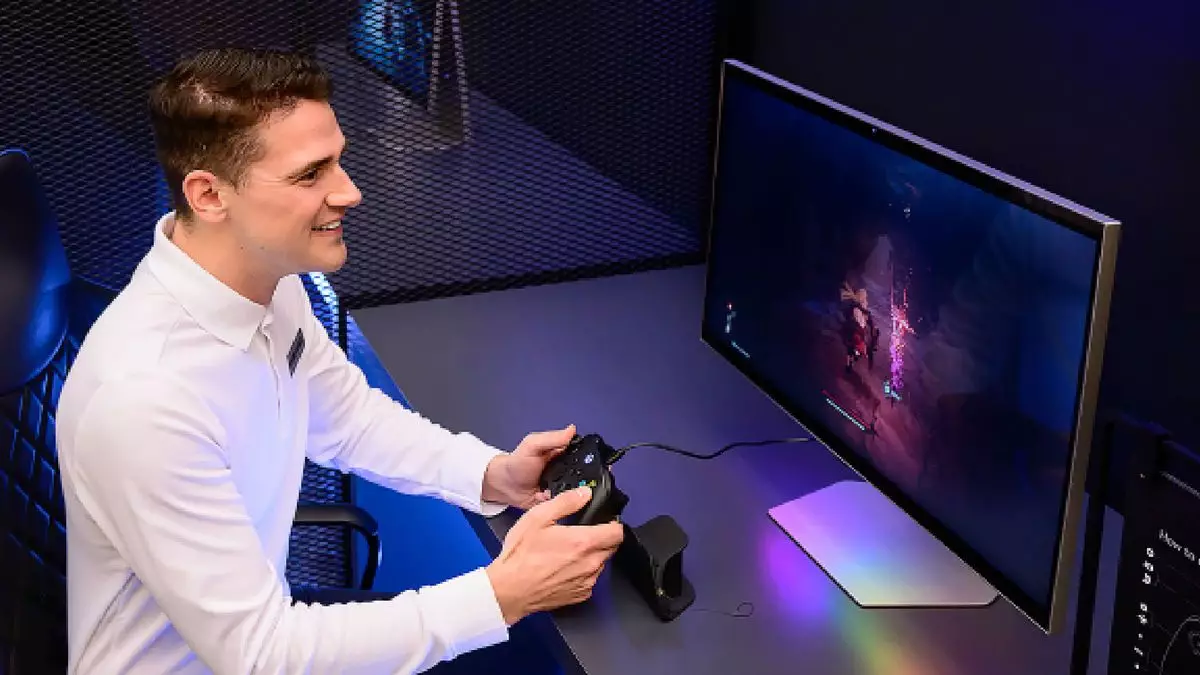The cinema industry has witnessed several technological advancements over the years, yet the overarching promise of 3D entertainment has often left viewers unimpressed. Remember the initial excitement surrounding 3D movies, sparked by iconic personalities like Michael Caine? While we quickly donned those retro glasses, the anticipated revolution in viewing experiences didn’t quite hit the mark for most audiences. Fast forward to today, and we find ourselves on the threshold of yet another ambitious attempt to elevate visual experiences in gaming without the cumbersome eyewear. This time, it’s not just about using glasses; it’s about redefining the very concept of depth perception in gaming itself.
Samsung has unveiled an intriguing partnership with Nexon Korea and Neople, aiming to deliver an unprecedented glasses-free 3D experience via their upcoming title, *The First Berserker: Khazan*. With the Samsung Odyssey 3D monitor at the heart of this innovation, the focus shifts towards creating a fully immersive environment that could potentially change how players engage with video games. By fine-tuning focal distance to optimize the 3D effect, developers intend to cultivate specific gaming scenarios that dictate the depth perception of various elements, thus addressing common issues like crosstalk—where visuals overlap in a distracting manner—and enhancing moments of extreme action that gamers cherish.
At CES 2024, the Samsung Odyssey 3D monitor caught the attention of tech enthusiasts. Featuring a blend of advanced technologies—including a front-mounted lenticular lens, stereo camera, and sophisticated eye-tracking capabilities—the monitor utilizes a light field display to craft a 3D effect. This nuanced technology manipulates light angles to trick the brain into perceiving depth, which remains one of the most critical challenges in the realm of 3D visuals. However, the road to widespread acceptance is fraught with hurdles; despite enhancements showcased at CES 2025, the current functionality of converting standard 2D content to 3D is limited to full-screen video presentations in web browsers. The evolution of customized content remains pivotal if Samsung aims to rival competitors such as Acer, who are already spearheading 3D initiatives with their SpatialLabs collaboration.
The question of whether glasses-free 3D can achieve mainstream success hinges on user experience—and skepticism persists. For many, the idea of perceiving depth without glasses seems alluring, but personal experiences can differ dramatically. I, for one, have often struggled with glasses-free 3D technology; it eludes my senses much like those elusive Magic Eye puzzles that confuse more than they entice. For this technology to flourish, it must cater to a broad audience that not only appreciates depth perception but can also comfortably experience it without frustration.
Whether Samsung’s endeavor will lead to a long-lasting transformation remains to be seen. While the excitement surrounding their partnership hints at a promising trajectory, it’s plausible that such innovations may end up as mere experimental fads, a chapter in the long saga of 3D technology that has faced repeated challenges over the decades. Nevertheless, the current stability of VR headsets suggests a robust market for 3D experiences awaits. If Samsung can strike a chord with gamers and deliver captivating titles alongside their innovative hardware, we might just witness a renaissance in how we experience games.
As we await the unveiling of *The First Berserker: Khazan*, it’s hard not to feel a mixture of hope and skepticism. The possibility of enjoying an immersive 3D gaming experience without cumbersome glasses is tantalizing and could redefine how we perceive virtual environments. Perhaps this is the moment that 3D gaming finally ascends to its rightful place in the gaming canon—or perhaps it’s just another fleeting shiny object in the tech landscape. Either way, I remain hopeful that a shift towards user-friendly, engaging 3D alternatives is on the horizon, reaffirming the dream that immersive experiences can evolve and thrive in the gaming world.

